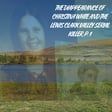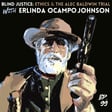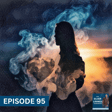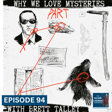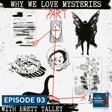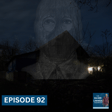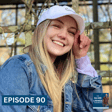
101. Justice for Love Lost with Kristina Byington
Kristina Byington joins us, whose cousin, a young college student named Anita Byington, was murdered in 1991 in Austin, Texas. We're going to discuss what it's like to be a victim's family member, what it's like to find the sense of peace only to have it taken away, and what it's like decades later to still fight for a family member and a friend who's long gone.
Contact me at silverliningshandbookpod@gmail.com.
Join our Facebook Group at:
https://www.facebook.com/groups/1361159947820623
Check out the Silver Linings Handbook website at:
https://silverliningshandbook.com/
Check out our Patreon to support the show at:
https://www.patreon.com/thesilverliningshandbook
Visit the Silver Linings Handbook store to support the podcast at:
https://www.bonfire.com/store/the-silver-linings-handbook-podcast-store/



